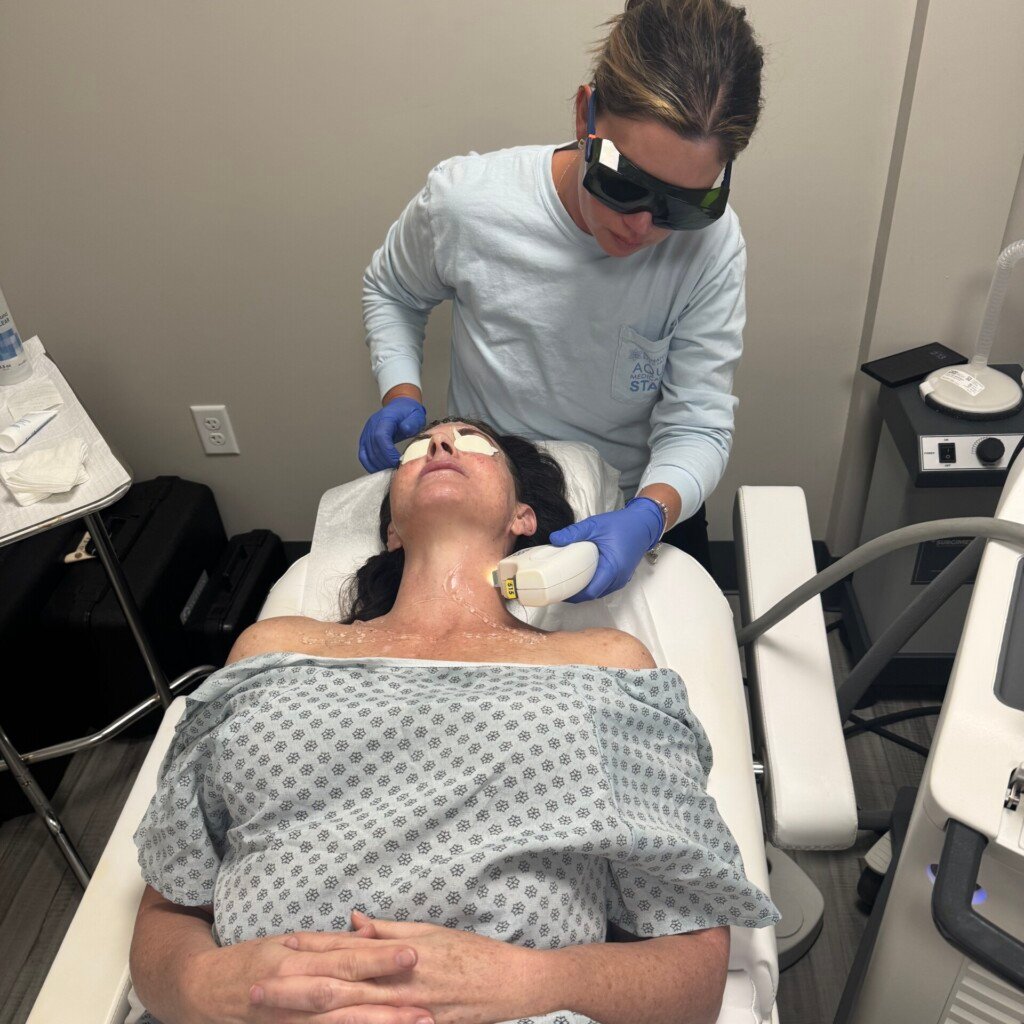Beat the Heat
Protect your skin this summer with these sun safety tips
As spring and summer’s temperate weather beckons us to the beach and boats, it’s important to take precautions to protect your skin from overexposure to the sun’s harmful UV rays.
Whitley Simpson, a board-certified physician assistant at Coastal Skin Surgery & Dermatology, is primed with specific tips and guidelines to ensure your fun in the sun remains safe and enjoyable.
“The obvious thing is to wear sunscreen,” Simpson says. “That may sound like a given, but it’s always good to wear at least an SPF 30 daily on your face. Outside of chemical sunscreen which absorbs into your skin, there is mineral sunscreen. Both are good, but mineral sunscreen works by reflecting and scattering the UV rays and works immediately upon application.”
Coastal Skin Surgery & Dermatology, which uses state-of-the-art techniques and expertise in treating skin cancer and offering dermatological and cosmetic services, supplies a variety of brands of vetted skin care and sun protection products. Simpson encourages those who desire something beyond a broad-spectrum UV protectant to shop by skin concern, such as sunscreens for sensitive skin, acne-prone skin, and already damaged skin for a layer of extra protection.
“It’s important to be thorough with your application, as we end up seeing skin cancer in a lot of areas you may not think about putting sunscreen,” Simpson says. “For men, we see it a lot on their scalp where their hair is thinner. We catch a lot of skin cancer, too, on the ears and the little space behind the ear.”
Simpson additionally recommends avoiding prolonged exposure during peak UV hours—from 10 a.m.-4 p.m.—as well as dressing accordingly. Sunglasses will protect your retinas, but it’s wise to invest in ultraviolet protection factor (UPF)-rated apparel and hats for extended outdoor activity.
Too, you may think about pre-tanning before hitting the beach for the first time since winter, but Simpson advises to stay away from tanning beds at all cost. “There’s a really scary statistic I like to share with my patients and that’s if you use a tanning bed just once before the age of 35, in increases your risk of melanoma by 75%.”
It’s a good idea to perform routine checks for signs of skin cancer. For basal cell and squamous cell carcinomas, Simpson said to look out for pearly or scaly lesions, sores that don’t heal and seemingly bleed on their or any unusually tender spots.
Melanoma in the form of a mole or raised bump can be trickier to identify. If someone has a suspicious mark they’re concerned about, the expert team at Coastal Skin Surgery & Dermatology can examine the spot through a dermatoscope, perform a minimally invasive biopsy and send a sample off to pathology for testing.
“Come in sooner rather than later if you suspect anything,” Simpson encourages. “We would rather have someone visit us and have it be nothing, than have them wait and it end up being something.”
Coastal Skin Surgery & Dermatology
CoastalSkinSurgery.com
Locations:
Miramar Beach | (850) 654-3376
12469 Emerald Coast Parkway
Fort Walton Beach | (850) 314-7546
912 Mar Walt Drive
Niceville | (850) 897-4900
4400 Hwy. 20 E, Suite 410
Panama City Beach | (850) 500-3376
12139 Panama City Beach Parkway



